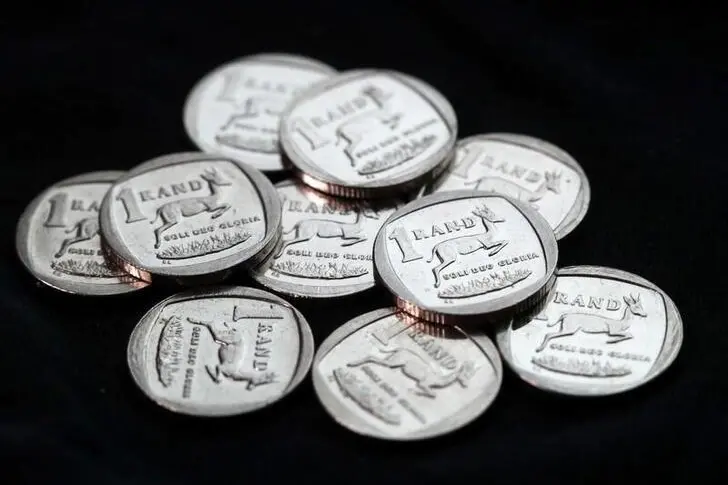PHOTO
JOHANNESBURG - The South African rand set a record closing low against the dollar on Friday but ended far from session lows after officials said the country had not approved any arms shipment to Russia late last year.
The currency was pummelled this week by investor concerns over the worst power cuts on record followed by a U.S. allegation that a Russian ship had picked up weapons in South Africa in December.
The rand recovered from its weakest level ever of 19.51 to the dollar hit earlier in the day but set a record closing low of 19.33. It fell 4.7% this week, the largest weekly drop in nine months.
"The risk of SA being seen to, or actually, collaborating with Russia should not be underestimated," said Investec Chief Economist Annabel Bishop in a research note.
There could be further substantial rand weakness if South Africa is proven to have helped Russia, which will heighten inflation amid already worsening power cuts, she said.
U.S. Ambassador to South Africa Reuben Brigety said he had spoken to Foreign Minister Naledi Pandor on Friday "to correct any misimpressions left by my public remarks" about the Russian ship accusations.
JP Morgan predicted on Friday that South African economic output would contract this year by 0.2% due to rolling blackouts.
MORE INTEREST RATE HIKES
The weaker rand was also adding to concerns about high inflation which could keep the South African central bank hiking interest rates longer than expected.
"The rand has come under pressure which, at the margin, makes it more likely that the Reserve Bank will hike interest rates further than we expect," Jason Tuvey, deputy chief emerging market economist at Capital Economics said in a note.
This could be another challenge for investors and households alike already grappling with high inflation and cost of servicing debt.
The Johannesburg stock market was firmer on Friday after slumping the day before.
The blue-chip index of top 40 companies ended up 1.85% and the all-share index was up by 1.73%, both securing small gains for the week.
The benchmark 2030 government bond was slightly weaker in price, with the yield up 8 basis points at 10.940%.
(Additional reporting by Promit Mukherjee Editing by Emelia Sithole-Matarise and Alistair Bell)





















